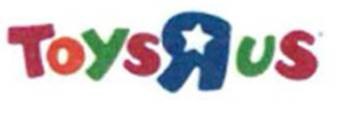Trademark owners often face challenges when attempting to enforce against non-confusing third party trademark use, for example, where someone has adopted a "parody" mark, where the mark may be similar trademark, or have the same 'look and feel', but in a completely different consumer space such that consumer confusion is unlikely. But where such mark nevertheless creates an association with a registered mark, and is likely to depreciate the value of the goodwill attaching to the registered mark,
As discussed more thoroughly in a recent Legal Update, the Federal Court of Canada in Toys "R" Us (Canada) Ltd v Herbs "R" Us Wellness Society has recently confirmed that depreciation of goodwill will not only be applied in cases where trademarks are essentially the same or so close that the average consumer would see it as the same mark, but also in cases where a trademark is clearly not the same, but which nonetheless has the same "look and feel" or same "striking elements" as the registered trademark.
The action involved the following logos:


While recognizing that it would be 'unlikely in the extreme' for an average Canadian consumer, even a casual one somewhat in a hurry, to conclude that a well-known toy retailer had branched out into cannabis dispensary services – such that trademark infringement and passing-off had not occurred – the Court determined that Toys R Us' had satisfied all four elements of the test for depreciation of goodwill: the logo was sufficiently similar such that a "mental association" between the two marks was "all but inevitable", the Toys R Us mark was found to have acquired significant goodwill, there was a "mental linkage" between the parties' trademarks given the similarity of the marks, and there was damage to the Toys R Us mark by (a) the reduction of mark's distinctiveness, and (b) the creation of an association between Toys R Us, a children's toy store, and a cannabis dispensary.
As a result, the Court granted an injunction against further use of "Herbs R Us" and awarded Toys R Us damages and costs.
The decision serves as a reminder that "depreciation of goodwill" can be a powerful tool when faced with non-confusing, but depreciative use, of a similar trademark.
Originally published 24 July, 2020
About Norton Rose Fulbright Canada LLP
Norton Rose Fulbright is a global law firm. We provide the world's preeminent corporations and financial institutions with a full business law service. We have 3800 lawyers and other legal staff based in more than 50 cities across Europe, the United States, Canada, Latin America, Asia, Australia, Africa, the Middle East and Central Asia.
Recognized for our industry focus, we are strong across all the key industry sectors: financial institutions; energy; infrastructure, mining and commodities; transport; technology and innovation; and life sciences and healthcare.
Wherever we are, we operate in accordance with our global business principles of quality, unity and integrity. We aim to provide the highest possible standard of legal service in each of our offices and to maintain that level of quality at every point of contact.
For more information about Norton Rose Fulbright, see nortonrosefulbright.com/legal-notices.
Law around the world
nortonrosefulbright.com
The content of this article is intended to provide a general guide to the subject matter. Specialist advice should be sought about your specific circumstances.
